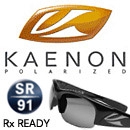
|
|
Scuttlebutt News:
(December 1, 2009) Arguably the most exciting boat among the Olympic events is the 49er skiff. With the top U.S. 49er teams absent from Olympic competition, the Americans were not expecting too much success from their top ranked team of Erik Stork and Trevor Moore during the first year of the new Olympic quadrennial. Erik had only sampled the class during the 2007 U.S. Olympic Trials, while Trevor, aside from a decorated college sailing career where he was named 2007 College Sailor of the Year, had never been in a skiff prior to their first training session in the summer of 2008. However, Erik and Trevor provided enough highlights on the event circuit in 2009 to supply the U.S. Olympic effort with some realistic hope for good things ahead. Scuttlebutt checks in with this team as they prepare for their sophomore season: Trevor: The 49er was a class in which I never thought about doing an Olympic campaign in, but after I competed in the ‘07 Laser Olympic trials, I realized that a single-handed boat was not the class for me. I have always enjoyed double handed boats, aside from the fact that you have someone to share your success and failures with, double handed sailing maintains a whole new set of challenges which is something that really drives me in competitive sailing. Needless to say, crewing is a position that I have never done so you can imagine switching from the Laser to the 49er provided an enormous amount of challenges. Erik: I actually thought I was going to get into the 470 at first. In the end, I didn’t have anyone to sail with who was the right size. I asked my brother if he wanted to sail the 49er with me. We were about the right size, so we got into it. That was five years ago. John (my brother) and I sailed the boat casually through the Trials in ‘07. He went a different direction. I love the boat; it is an incredible challenge. Erik: We both graduated from college in 2007. I went to Dartmouth, and Trevor went to Hobart and William Smith Colleges. After my brother decided he was done, I gave Trevor a call. We go way back. You know how they say, “if you can’t beat him, get him to sail with you.” He’s the ideal body type, and he made the transition to the trapeze and crewing seamlessly.
Erik: The boat is much more one-design than some of the other Olympic Classes. There is one mast, and one sail-maker. There are two boat builders that everyone buys from, Ovington from England, and MacKay from New Zealand. We just bought a new boat from MacKay. Erik: It is difficult to say, because the level is so high, but it seems to be an advantage. Everyone is still figuring it out. We sailed in the first event for the new rig along with everyone else. There are still many discrepancies on how to get the most out of the rig, and it is exciting to be in the game for the development period. Erik: Our strengths have included upwind boat-speed in most wind strengths, strategy, and tactics. Our starts, which we have worked on tirelessly, have improved immensely over the course of the season. Some weaknesses continue to be our big breeze boat-handling, though we have improved there a great deal, and consistency throughout the event. We often start out strong, but lose headway in the middle of the event. As with most things, experience should iron out most of our difficulties. Erik: Having consistently good starts is essential. The regattas are long, and it is important to keep a clear mindset throughout the event. When it boils down to it, the lessons for a rookie team on the circuit are far too many to count. We simply try to get the most of every situation we are put in. Trevor: Seeing that Erik and I are relatively new to the class, big breeze boat handling is one aspect of our game that is slowly getting better. As we get more time in the boat, the biggest lesson learned is to keep the boat upright. When you flip the consequences are very costly. Erik: We have had some great highlights, including a win in a race at Kiel Week, a pair of seconds in two consecutive races at the Europeans, and standing in fourth at the end of the first day of racing at the Sail for Gold Regatta against many of the best in the World. We had some tougher days at a few events as well, including the final day of the qualifying series at the Worlds when we slipped down from qualifying for gold fleet. Besides all the on-the-water highs and lows, there have been the same highs and lows anyone would expect when traveling, living, and generally spending every waking moment with another person. Erik: The biggest surprise has been the team atmosphere surrounding the US Sailing Team AlphaGraphics. Our most recent event was the Sail for Gold Regatta in Weymouth, England where the entire team came together for a training period and regatta at the end of the summer sailing season. The vibe was great. The coaches and sailors have really come together to make everyone better.   
back to top |







|



